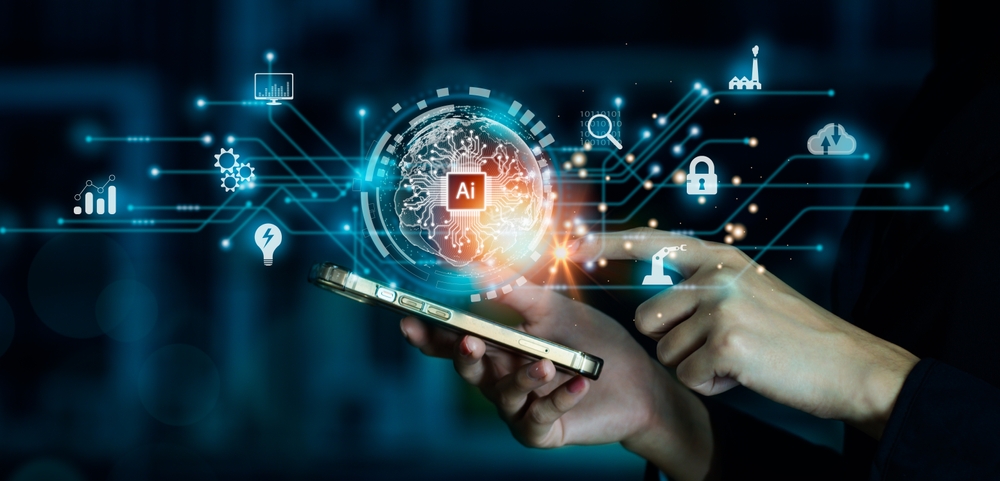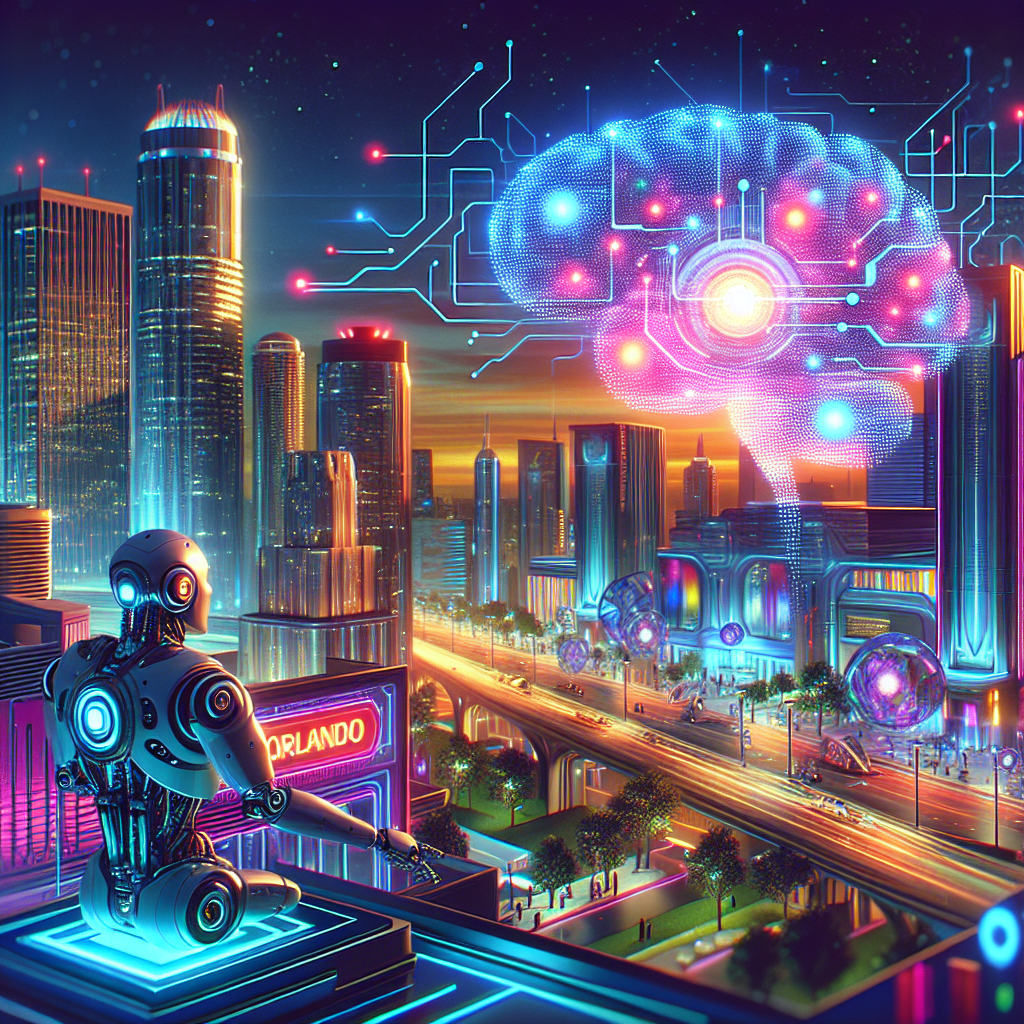Imagine a world where marketing campaigns are tailored specifically to each individual’s interests and preferences, resulting in a highly personalized experience that not only captivates the audience but also drives measurable results. This is not a distant dream, but rather the future of marketing that is being realized through the power of artificial intelligence (AI). In the dynamic city of Orlando, businesses are harnessing the capabilities of AI to revolutionize their marketing strategies, creating a new era of targeted and impactful campaigns. From predictive analytics to chatbots, AI is paving the way for innovative and efficient marketing practices that are certain to shape the future of this vibrant industry.
Heading 1: Understanding Artificial Intelligence in Marketing
Subheading 1: Definition and Overview of Artificial Intelligence
Artificial Intelligence (AI) is a technology that enables machines to mimic human intelligence and perform tasks that typically require human cognition. In the context of marketing, AI refers to the use of technologies and algorithms to analyze data, make predictions, and automate processes in order to optimize marketing strategies. It involves the use of machine learning, natural language processing, and other advanced techniques to understand and interact with customers in a more personalized and efficient way.
Subheading 2: Evolution of Artificial Intelligence in Marketing
AI has revolutionized the field of marketing by providing marketers with powerful tools and insights to understand and connect with their target audience. Over the years, AI has evolved from basic automation technologies to more sophisticated and intelligent systems that can analyze vast amounts of data, predict consumer behavior, and optimize marketing campaigns. With advancements in AI, marketers are now able to deliver personalized experiences, enhance customer engagement, and drive business growth.
Subheading 3: Benefits of Using Artificial Intelligence in Marketing
The use of AI in marketing offers various benefits to businesses. It enables marketers to gain deep insights into customer preferences and behavior, allowing them to create more personalized and targeted marketing campaigns. AI-powered tools also help in automating repetitive tasks, saving time and resources for marketers. With AI, businesses can optimize their marketing strategies, improve customer satisfaction, and ultimately increase sales and revenue. By leveraging AI technology, marketers have the opportunity to stay ahead in the competitive landscape and meet the evolving demands of consumers.
Heading 2: AI-powered Personalized Advertising
Subheading 1: Enhanced Customer Profiling
AI enables marketers to create detailed customer profiles by analyzing vast amounts of data. By leveraging machine learning algorithms, AI systems can identify patterns, preferences, and behaviors of individual customers. This allows marketers to deliver highly personalized advertising messages, which resonate better with the target audience. Through enhanced customer profiling, businesses can tailor their advertising campaigns to specific customer segments, increasing the chances of engagement and conversion.
Subheading 2: Dynamic Ad Creative
AI-powered advertising platforms enable marketers to dynamically generate ad creative based on real-time data. By analyzing user behavior, demographics, and context, AI systems can deliver personalized ad content that is more likely to grab the attention of the target audience. This dynamic approach to ad creative allows marketers to optimize their advertising campaigns and increase their effectiveness.
Subheading 3: Real-time Ad Optimization
With AI, marketers can optimize their ad campaigns in real-time by analyzing data and making data-driven decisions. AI algorithms can monitor and analyze various metrics such as click-through rates, conversion rates, and engagement levels to understand the performance of different ads and make adjustments accordingly. By continuously optimizing ads based on real-time data, marketers can maximize their return on investment and achieve better overall campaign results.
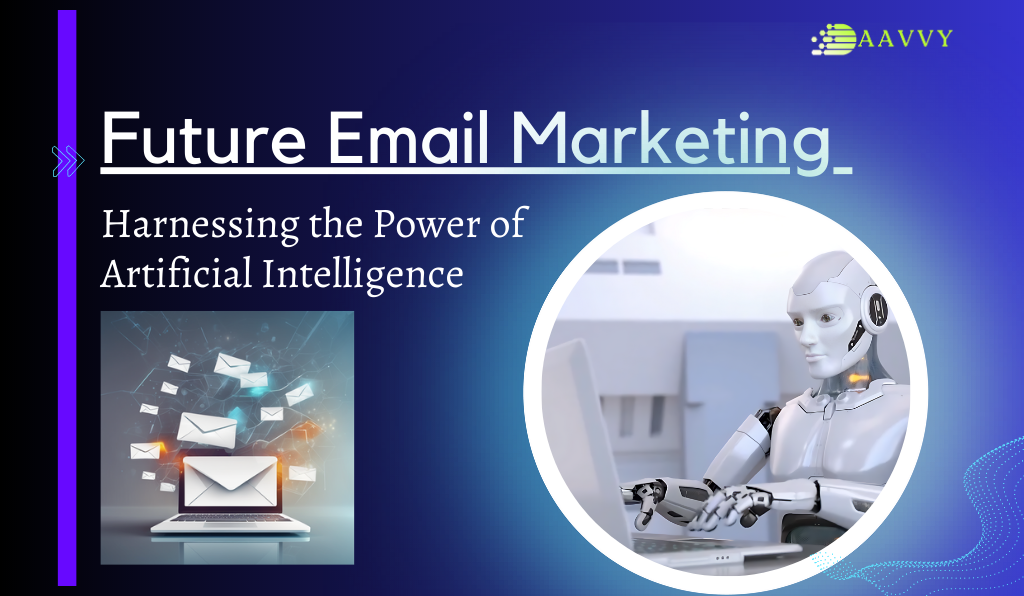
Heading 3: AI-powered Predictive Analytics
Subheading 1: Advanced Data Analysis
AI-powered predictive analytics enables marketers to analyze large volumes of data and uncover meaningful insights. By applying machine learning algorithms, AI systems can identify patterns, trends, and correlations in customer data. This allows marketers to make accurate predictions about future customer behavior, preferences, and purchasing decisions. Advanced data analysis helps marketers to make informed decisions, optimize marketing strategies, and drive better business outcomes.
Subheading 2: Predicting Customer Behavior
AI enables marketers to predict customer behavior by analyzing historical data and identifying patterns. By understanding customer preferences, buying habits, and interactions with the brand, marketers can anticipate their needs and deliver personalized experiences. Predictive analytics also allows marketers to identify potential churn, target high-value customers, and optimize customer acquisition and retention strategies.
Subheading 3: Optimizing Marketing Campaigns
With AI-powered predictive analytics, marketers can optimize their marketing campaigns by predicting the most effective marketing channels, timing, and messaging. By analyzing historical campaign data and customer behavior, AI algorithms can identify the factors that contribute to campaign success. This allows marketers to allocate resources effectively, optimize targeting strategies, and improve the overall performance of their marketing campaigns.
Heading 4: AI-driven Customer Experience
Subheading 1: Chatbots and Virtual Assistants
AI-powered chatbots and virtual assistants have become increasingly popular in providing personalized customer experiences. By leveraging natural language processing and machine learning, these AI systems can understand and respond to customer queries in real-time. Chatbots and virtual assistants can handle routine customer inquiries, provide product recommendations, and facilitate seamless interactions, enhancing the overall customer experience.
Subheading 2: Natural Language Processing
AI-powered natural language processing enables businesses to understand and process unstructured data such as customer reviews, social media posts, and customer feedback. By analyzing and extracting valuable insights from text data, marketers can gain a better understanding of customer sentiment, preferences, and needs. Natural language processing also allows businesses to respond to customer feedback and resolve issues promptly, improving customer satisfaction and loyalty.
Subheading 3: Personalized Recommendations
AI enables marketers to deliver personalized recommendations to customers based on their browsing behavior, purchase history, and preferences. By leveraging machine learning algorithms, AI systems can analyze customer data and provide tailored product recommendations and offers. This personalized approach not only enhances the customer shopping experience but also increases the likelihood of conversion and customer retention.

Heading 5: Automated Email Marketing
Subheading 1: Intelligent Email Campaigns
AI-powered email marketing platforms enable marketers to create intelligent and personalized email campaigns. By analyzing customer data, AI algorithms can segment the target audience and deliver customized email content based on individual preferences and behaviors. This level of personalization helps in increasing open rates, click-through rates, and overall engagement with email campaigns.
Subheading 2: Behavior-based Email Sequences
AI allows marketers to automate email sequences based on customer behavior and actions. By setting up triggers and rules, AI systems can send relevant and timely emails to customers based on their interactions with the brand. This behavior-based approach ensures that customers receive emails that are tailored to their specific needs, improving the effectiveness of email marketing campaigns.
Subheading 3: AI-powered Email Analytics
AI-powered email analytics provides marketers with valuable insights into the performance of their email campaigns. By analyzing metrics such as open rates, click-through rates, and conversion rates, AI systems can identify trends and patterns in customer behavior. These insights enable marketers to optimize their email marketing strategies, improve targeting, and drive better results.
Heading 6: Voice Search and AI-powered SEO
Subheading 1: Rise of Voice Search
With the increasing popularity of voice-enabled devices and virtual assistants, voice search has emerged as a significant trend in digital marketing. AI plays a crucial role in voice search by understanding and interpreting voice-based queries. Marketers need to optimize their content and websites to be voice search-friendly to ensure their visibility in search results.
Subheading 2: Optimization for Voice-based Queries
AI-powered SEO tools help marketers optimize their content and websites for voice-based queries. By analyzing the language and context of voice search queries, AI algorithms can suggest relevant keywords, create conversational content, and improve the overall user experience. Optimizing for voice-based queries is essential for marketers to stay relevant and capture the growing audience of voice search users.
Subheading 3: AI-driven SEO Strategies
AI-driven SEO strategies utilize machine learning algorithms to analyze data and make data-driven decisions. AI systems can analyze website performance, backlink profiles, and search engine rankings to identify areas for improvement. By leveraging AI in SEO, marketers can optimize their websites, improve search engine visibility, and drive organic traffic.
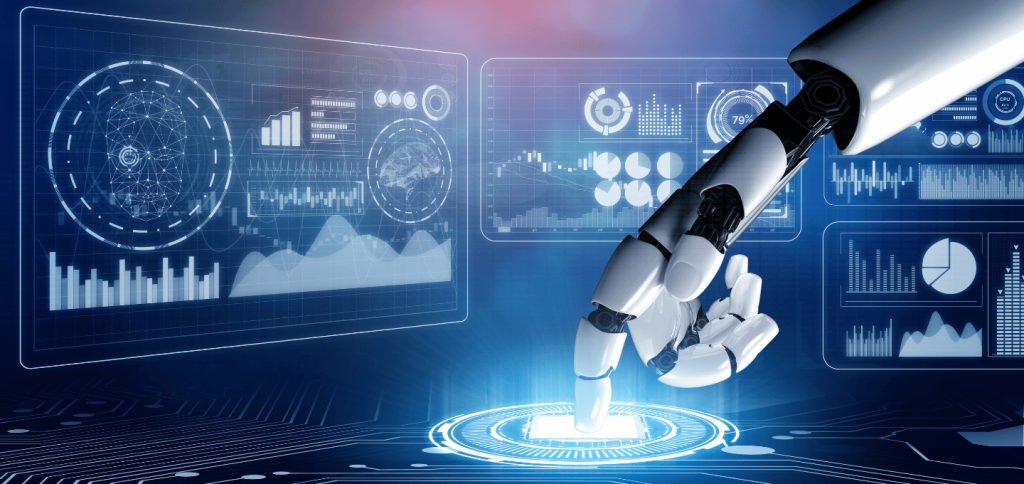
Heading 7: Virtual Reality in Marketing
Subheading 1: Immersive Brand Experiences
Virtual Reality (VR) technology provides marketers with the ability to create immersive brand experiences. By leveraging VR, marketers can transport customers to virtual environments where they can interact with products, explore virtual showrooms, and engage with brand content in a more engaging and memorable way. VR allows businesses to create unique and impactful brand experiences that leave a lasting impression on customers.
Subheading 2: Product Demonstrations through VR
VR enables marketers to showcase products and services in a virtual environment, allowing customers to experience them in a realistic and interactive way. By providing virtual product demonstrations, businesses can give customers a better understanding of their offerings, highlight key features, and illustrate the value of their products. This immersive approach to product demonstrations enhances customer engagement and increases the likelihood of conversion.
Subheading 3: Enhanced Customer Engagement
VR technology offers unique opportunities for businesses to engage with customers in innovative ways. By creating virtual events, virtual reality games, or interactive VR content, marketers can capture the attention and interest of customers, driving higher engagement levels. VR allows businesses to create memorable and differentiated experiences that make a lasting impact on customers.
Heading 8: AI and Big Data Analytics
Subheading 1: Utilizing the Power of Big Data
AI enables marketers to leverage the power of big data for gaining valuable insights and making informed decisions. With AI algorithms, marketers can analyze vast amounts of structured and unstructured data to identify patterns, trends, and correlations. By harnessing the potential of big data, marketers can uncover hidden insights, understand customer behavior, and optimize their marketing strategies.
Subheading 2: Extracting Actionable Insights
AI-powered big data analytics help marketers extract actionable insights from complex and diverse data sets. By applying machine learning algorithms, AI systems can uncover insights that may not be apparent to human analysts. These insights enable marketers to make data-driven decisions, understand customer preferences, and deliver personalized experiences. The ability to extract actionable insights from big data allows businesses to stay ahead in a competitive market landscape.
Subheading 3: Segmentation and Targeting
AI, combined with big data analytics, enables marketers to segment their target audience more effectively. By analyzing customer data, AI algorithms can identify different customer segments based on demographics, behavior, and preferences. This segmentation enables marketers to create targeted marketing campaigns, deliver personalized experiences, and increase the chances of customer acquisition and loyalty.
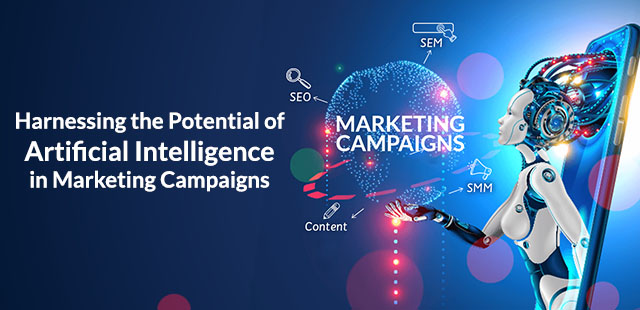
Heading 9: Ethical Considerations of AI in Marketing
Subheading 1: Privacy and Data Security
The use of AI in marketing raises concerns about privacy and data security. Marketers need to ensure that customer data is handled responsibly and in compliance with privacy regulations. It is essential to implement robust data security measures to protect customer information from unauthorized access or misuse. Transparency and communication about data collection and usage are crucial in maintaining customer trust.
Subheading 2: Transparency and Explainability
AI algorithms often work as black boxes, making it challenging to understand how they arrive at certain decisions or recommendations. Marketers should strive for transparency and explainability in their AI systems to build trust with customers. Providing clear explanations about how AI is used in marketing and being transparent about the limitations and biases of AI algorithms can help alleviate concerns and build customer confidence.
Subheading 3: Algorithmic Bias and Fairness
AI algorithms can be biased due to the data they are trained on or the biases in the programming. It is crucial for marketers to ensure that AI systems are designed to be fair and unbiased. Regular auditing and testing of AI systems can help identify and address any biases. Building diverse and inclusive training datasets can also help reduce algorithmic bias and ensure fair outcomes.
Heading 10: Future Trends and Possibilities
Subheading 1: AI-powered Marketing Automation
The future of marketing lies in AI-powered marketing automation. With the increasing adoption of AI technology, marketers can further automate and optimize their marketing processes. AI-powered marketing automation can streamline tasks such as lead generation, content creation, campaign management, and customer engagement. This automation allows marketers to focus on strategic initiatives, improve efficiency, and drive better results.
Subheading 2: Integration of AI with IoT
The integration of AI with the Internet of Things (IoT) opens up new possibilities in marketing. By combining AI and IoT, marketers can collect real-time data from connected devices and leverage AI algorithms to analyze and extract valuable insights. This integration enables marketers to deliver personalized experiences, automate processes, and create innovative marketing campaigns that leverage the capabilities of IoT devices.
Subheading 3: Augmented Reality Marketing
Augmented Reality (AR) presents exciting opportunities for marketers to engage with customers in unique and immersive ways. By overlaying digital content onto the physical world, AR technology allows marketers to create interactive and memorable brand experiences. AR can be used in various marketing applications, such as virtual try-ons, interactive product demonstrations, and immersive storytelling. Augmented reality marketing provides businesses with a new and creative way to capture the attention and interest of customers.
In conclusion, the use of artificial intelligence in marketing has transformed the way businesses interact with customers and optimize their marketing strategies. AI-powered personalized advertising, predictive analytics, customer experience, and automated email marketing are just a few examples of how AI is revolutionizing the marketing landscape. Marketers need to consider the ethical implications of AI, including privacy, transparency, and fairness. As AI continues to advance, future trends and possibilities such as AI-driven marketing automation, integration with IoT, and augmented reality marketing will shape the future of marketing. Harnessing the power of AI in marketing is essential for businesses to stay competitive, deliver personalized experiences, and drive business growth in the digital age.
